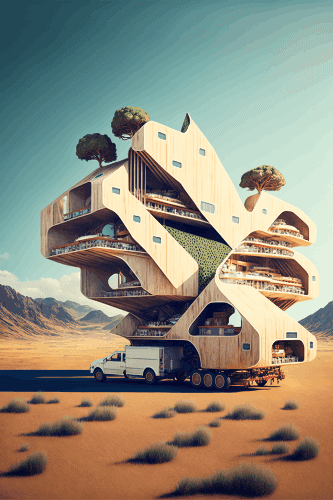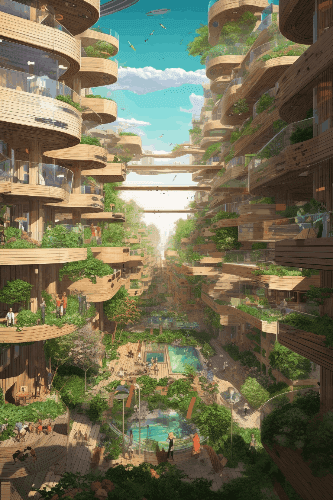

Nature and Technology
The fusion between nature and technology is a concept that has gained increasing attention in recent years. As we strive to find innovative ways to incorporate technology into our lives, we are also becoming more aware of the importance of preserving and protecting our natural environment. One example of this fusion is the design of a charging station that also serves as an artificial tree. The concept of an artificial tree charging station is an innovative solution that combines the functions of a conventional charging station with the aesthetics of a natural tree. This design provides a sustainable and environmentally friendly option for charging electrical appliances such as vehicles and mobile phones. The artificial tree charging station is equipped with solar panels, which generate renewable energy that is used to power the charging station. This renewable energy is then stored in a battery, which is used to charge electrical appliances. The artificial tree charging station also provides a unique aesthetic that blends seamlessly with the surrounding natural environment. The design mimics the look of a real tree, with branches and leaves that provide shade. The charging station also integrates sensors that monitor the surrounding environment, such as air quality, temperature, and humidity. This data is used to optimize the charging station's performance and provide valuable insights into the surrounding ecosystem. The artificial tree charging station is a prime example of how we can incorporate technology into our lives while also preserving and protecting our natural environment. This design provides a sustainable option for our future lifestyles.

"Remote Living"
An exploration on living life remotely and redefining the way we think about the concept of "homes". The practice of living and working remotely has become an increasingly popular trend in recent years, as companies and people adopt policies that encourage the ability to work and live anywhere. People are beginning to seek the flexibility and autonomy that comes with a remote lifestyle, shifting our cultural attitudes towards our current living conditions. This growing movement has established more nomadic lifestyles, with technology allowing us to communicate and interact with each other and providing us the ability to no longer be tied to specific locations. "Remote Living" is a study on the potential to transform how we reflect on the concepts of a home and communities. The concept of "home" may become more fluid and people may place a greater emphasis on building communities online or in person through shared interests and activities, and many choose to travel to different countries or regions in order to experience new cultures and lifestyles. Overall, the trends in remote living point towards a future where more and more people have the ability to live and work from anywhere, and where traditional notions of home and community are increasingly being redefined. The following AI generated results are a fun and interesting architectural representation of this concept, with an emphasis on a mobile nomadic, self sufficient, sustainable road trip lifestyle:

Modern Utopia
Modern Utopia A utopian society where humanity has learned to develop an efficient and effective use of technology and artificial intelligence, a world that is driven by innovation and progress. A community built upon the foundations of equality, where every individual is treated with the same respect and dignity. Technology and artificial intelligence would be used to benefit humanity, and not to exploit it. Automation would be used to take care of tedious and repetitive tasks, freeing up human beings to focus on more important matters such as creativity, innovation, and personal growth. Education would be available to all, and not just to the privileged few, with the aim of equipping every member of society with the skills and knowledge necessary to contribute to the greater good. This community would be in perfect harmony with nature and the environment. They would have found ways to develop technology that does not harm the environment and have learned to live in a sustainable manner. They would have found ways to coexist with other forms of life, recognizing that all life is valuable and has a role to play in the ecosystem. The community would be self-sufficient, with every member contributing to the collective good. There would be no poverty, hunger, or homelessness. Healthcare would be available to all, and diseases would be eradicated through the use of technology and scientific research. Such a society would be the ultimate goal of human civilization, and we should strive towards achieving it. Through my personal lens a Utopia is not place but an ever-growing, evolving concept that is based on our current understanding of the world. A Utopia is not much more than a map, a guidebook, a sense of destination, through examining the possibilities of a distant future.